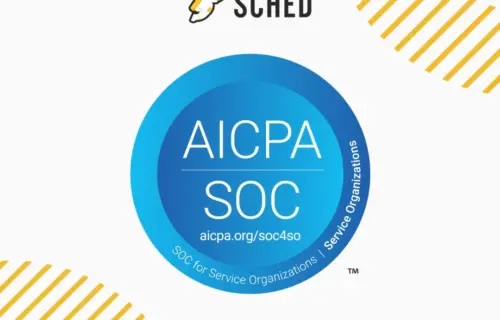Let’s chat about the wild ride that is event planning. Exhilarating? Yes. But it quickly becomes complicated. Add managing event speakers to the mix and complexity hits the roof.
Are you constantly juggling multiple event schedules, crossed communication, and countless tiny but vital details?
We’ve been there. The odd, misplaced piece of critical information here. Repetitive, time-eating tasks there. With such an intricate task, it’s only human for the occasional slip-up.
In this article, we’ll expose the top ten mistakes you might make when coordinating your event speakers. But we won’t leave you hanging! We’ll show you how to dodge these common mishaps and ramp up your event speaker management game.
Inefficient communication
Table of contents
- 1 Inefficient communication
- 2 Manual scheduling
- 3 Limited event speaker autonomy
- 4 Handling sudden changes
- 5 Overlooking event speaker needs
- 6 Insufficient event speaker promotion
- 7 Unprepared event speakers
- 8 Inability to track attendance
- 9 Misaligned event speaker topics
- 10 Failing to facilitate event speaker networking
- 11 Final thoughts
Let’s face it. Effectively communicating with event speakers is one of the trickiest parts of event planning. We’ve all been victims of late replies, misunderstandings, and vague instructions. You’re soon caught in a whirlpool of confusion that causes delays and sours your rapport with speakers.
Solution
Let’s cut to the chase. You need to amp up your communication game. It’s all about quick replies and super clear instructions.
But how?
Speaker management software is a great tool for eliminating “uh-oh” misunderstandings. A centralized event speaker platform guarantees swift responses and crystal-clear instructions. Keep misunderstandings at bay and build stronger bonds with your event speakers.
Manual scheduling
It’s surprising how many event organizers still rely on old-school manual scheduling. Using multiple tools leads to errors, slip-ups, and miscommunication with event speakers. No one wants to clean up schedule clashes or double-booked speakers. Keep using Google Forms and Excel to create confusion and frustration. You’ll also leave a not-so-pleasant impression of your event’s organization.
Solution
Try a centralized scheduling app to transform manual planning from treacherous terrain to a walk in the park. Speaker management software puts everything in one place. Simply, zero clashes and perfectly synchronized event speakers. This can significantly boost the efficiency and smooth running of your event. Who doesn’t love a well-oiled machine?
Limited event speaker autonomy
Think about it: If you were an event speaker, wouldn’t you like some control over your presentation? Sure. But guess what? Most event planners drop the ball here. It’s the fastest way to kickstart an avalanche of admin tasks and invite an onslaught of not-so-happy speakers.
Solution
Top-notch speaker management tools give event speakers the autonomy they crave. They can upload photos, contact info, social media links, bios – you name it. Not only does this trim down your admin tasks, but it also keeps your speakers smiling. You’re too busy to waste time uploading session names, descriptions, and resources.
Handling sudden changes
Picture this: you’re planning an event and everything’s going smooth as butter. Bam! Unexpected changes can pop up out of nowhere. An event speaker calls in sick at the last minute. Maybe the schedule flips or your venue falls through. Dealing with surprises can feel like trying to hold water in your hands – tricky and a tad stressful, to say the least.
Solution
Prepare a ‘Plan B’ for critical components of your event. For example:
- Have alternative event speakers on speed dial.
- Source a backup venue.
- Embrace a flexible timeline that can accommodate any schedule shifts.
- Invest in an event management app that allows you to communicate last-minute changes with push notifications.
This way, you’re always ready to roll with the punches and keep your event on track. In the world of event planning, staying two steps ahead is half the battle won.
Overlooking event speaker needs
Let’s not forget that every event speaker has their own set of needs. You can’t gloss over specific equipment for their presentation, dietary requirements, or accessibility. Overlooking these unique needs can rub event speakers the wrong way and throw unexpected hurdles during your event.
Solution
First, make sure you communicate with your event speakers as soon as they’re confirmed. Send them a detailed questionnaire that covers everything from their technical requirements to their favorite foods. Encourage them to share as much as possible so you can cater to their needs. The same advice applies to managing event speakers at your virtual event!
Next, keep all this information in a comprehensive speaker database. Give your team easy access throughout the planning process. Make sure to update it regularly as new information comes in.
Don’t forget to coordinate with catering and technical staff. Let caterers know about dietary restrictions and give the tech team any necessary specs.
To really make your event speakers feel comfortable, schedule rehearsals and site visits. This way, they can familiarize themselves with the space and equipment ahead of time.
Finally, reach out to your speakers post-event and ask for feedback. Did you meet all their requirements? Did they face any challenges? This will help you improve future events and keep your speakers happy.
Insufficient event speaker promotion
Promoting event speakers isn’t just important. It’s essential for drawing attendees to your event. An attractive speaker lineup is a major selling point for many attendees. Event planners don’t always hit the mark when showcasing their speakers, though. This shortfall can lead to a low event turnout. Selling tickets? Get this wrong and risk your income.
Solution
Find a speaker management software with the tools to promote your event speakers effectively. You’re looking for dedicated profiles to show off your speakers, plus features to promote sponsors and exhibitors. All these goodies ramp up visibility to boost your event’s success.
Unprepared event speakers
Ever experienced a speaker improvising their presentation? It’s like watching a tightrope walker without a safety net… nerve-racking for everyone involved.
Event speakers come unprepared due to a lack of time and resources or simply because they underestimate the prep. The consequence? The quality of your event drops and audience engagement suffers.
Solution
Preparation is key and it’s a two-way street. Facilitate a process that gives event speakers the tools, time, and information to properly prepare for their sessions.
Give event speakers comprehensive details about their audience and expectations. Organize review meetings ahead of the event and offer speaker coaching.
Need help? Sched offers speaker training services.
Inability to track attendance
We all know how crucial it is to keep an accurate count of session attendance. Understanding which event speakers and topics draw a crowd sets future events up for success.
But how can you assess your event without knowing your most (un)popular sessions? If gathering key event data gets you in a sweat, you probably have an unreliable – or nonexistent – system in place.
Solution
First things first, you need to choose the right attendance tracking method. There are a few options you can consider.
You could go old-school with manual sign-in sheets. Beware! Errors, sloppy handwriting, or misplaced sheets are equal to no tracking system.
QR code scanning or RFID/NFC technology are great automated options if you can handle the price tag.
The middle ground? Get a speaker management tool that takes care of monitoring attendance. Affordable options exist that facilitate data collection and management.
Remember to train your staff and volunteers, too! Make sure they understand the importance of accuracy and train them to use your chosen tool.
Misaligned event speaker topics
A well-orchestrated event is like a symphony. Every element, including speaker topics, should harmonize with the overarching theme.
Sometimes, event speakers present topics that seem out of sync with the event or fail to resonate with your audience. This can lead to lower attendee satisfaction and impact your event’s success.
Solution
To start, you need to have a clear, overarching theme that reflects the purpose and goals of your event. Make sure to identify your key objectives and cater to your audience. This will give you a solid foundation to evaluate event speaker proposals and topics.
Next, put a robust call for speakers in place. Create a standardized application that asks potential speakers to provide:
- Information about their topic and how it aligns with the event theme
- The intended audience
- The speaker’s background and experience
When reviewing applications, do your homework! Make sure their expertise and reputation align with your event objectives. Dive into their past gigs, publications, and online presence to check if they’re a good fit.
Once you’ve chosen your event speakers, communicate your event’s theme, objectives, and target audience. Provide guidelines on the desired tone, content, and alignment with the event’s vision.
Pro tip: After the event, track the number of sign-ups each session gets. Take this data to decipher which sessions resonated the most with your audience for future editions.
Failing to facilitate event speaker networking
Imagine this: You’re a speaker at an event full of professionals in your field. Yet there’s no space or time for you to connect with them. Sounds like a missed opportunity, right?
Event planners often overlook this speaker perk. If you have great event speakers, you want them back for future events. Sweeten the deal for them. Offer networking opportunities with peers and industry leaders.
Solution
Why not carve out some space in your event for speaker networking? This could be a special networking session or an exclusive mixer for speakers. Try setting up a speaker lounge for event speakers to relax, recharge, and chat with each other.
Pre-event, establish dedicated communication channels where event speakers can introduce themselves and browse each other’s profiles.
Consider identifying opportunities for speaker collaboration, such as joint presentations or panel discussions. Collaborative activities not only enhance speaker networking. They provide added value to attendees by showcasing diverse perspectives and expertise.
NEW: Elevate your Call for Speakers with a streamlined (and free) purpose-built tool!

The above advice on crafting your call for conference speakers is solid. However, there is a lot of work there. And we know your time is precious.
That’s why – after listening to our event planners – we built our Call for Papers tool. The benefits are too good to say no.
- Super easy to use: With our tool, you can effortlessly create a professional and distinctive call-for-speakers page in just three simple steps. It’s a huge time saver.
- Save (more) time: Sifting through countless speaker applications manually is bogging down your event’s planning phase. The software will take care of assessing the applications, presenting you with a refined list of top candidates.
- Better picks: After that, your only task will be to select your favorites from the cream of the crop. The result? More captivating speakers for your audience and a smoother planning experience for you!
This feature is in high demand, so ensure you’re on the waiting list to make sure you get all the benefits!
Final thoughts
Speaker management requires attention to detail, open communication, and careful organization. By following our strategies, you can minimize mistakes and stay on top of your event speakers. Refine your speaker management approach and navigate event planning with ease and confidence.
Our secret sauce to conquering this daunting task? Flexible and smart event speaker management tools. Sched packs powerful solutions to tackle speaker management head-on. Unlock Sched’s full potential to set the stage for seamless and successful events.
Experience how Sched can transform your speaker management process today! Start your free trial now.








